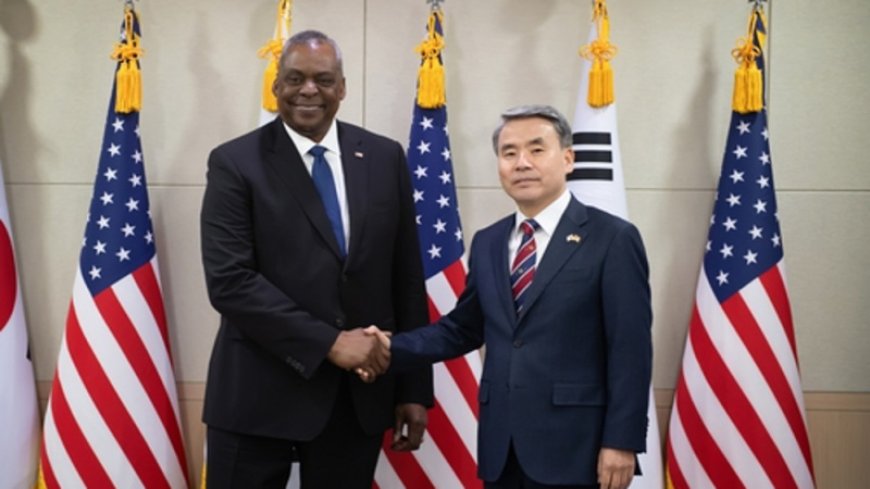Space, the USA: new anti-China alliance with Japan and South Korea
Space, the USA: new anti-China alliance with Japan and South Korea

Military, civil and commercial cooperation in space will be one of the main topics on the agenda during the first trilateral summit between US President Joe Biden, Japanese Prime Minister Fumio Kishida and South Korean President Yoon Suk-yeol to be held next Friday at Camp David. The White House's goal is to foster closer in-orbit cooperation between the two Pacific nations, each of which is a key regional ally of the United States, but whose historical enmities, especially regarding Japan's actions in the Korean Peninsula during World War II, often slowed efforts to make Tokyo and Seoul full military partners. At the bilateral level, in fact, the Bidena administration has already worked with each of the two countries to enhance and deepen the levels of extra-atmospheric cooperation with both Japan and Korea.
Washington and Seoul, for example, signed a joint declaration for cooperation in space exploration in April, during a visit by Yoon to the United States, during which he visited NASA together with the vice president, Kamala Harris. Biden and Yoon also “pledged to further strengthen the US-Korea alliance” in the space. Furthermore, the United States "welcomed the commitment of the Republic of Korea not to conduct destructive tests of direct-range anti-satellite missiles", an initiative that Washington, and Harris in particular, have promoted globally . Similarly, space cooperation was one of the central topics of the US-Japan meeting in January in a 2+2 Foreign-Defence format between the secretaries of state, Antony Blinken, and of Defense, Lloyd J. Austin, and the ministers of the Foreign, Yoshimasa Hayashi, and Defense, Yasukazu Hamada. In the joint statement the two sides said that "attacks on, from or in space could lead to the invocation of Article V of the Japan-US Security Treaty".
Washington and Tokyo also signed the bilateral framework agreement for cooperation in the exploration and use of outer space, including the moon and other celestial bodies, for peaceful purposes. In addition, Tokyo recently adopted its first Space Security Initiative, which is committed to strengthening Japan's national security space capabilities and expanding the Japan Self-Defense Force's capabilities to attack communications or strike enemy satellite ground systems. in a possible conflict scenario. The awareness of the rapid growth of China's space capabilities, whose development of advanced technologies could put US and allied space assets at risk in the event of a conflict. At the top of the list of priorities for the US Department of Defense is the enhancement of Situational space awareness capabilities and anti-missile defense and warning systems.
Furthermore, in these areas, the willingness of Japan and Korea to collaborate seems to be more convinced. For example, during the Shangri-La Dialogue in Singapore in June, the three countries linked their respective ballistic missile warning radars in the region to avoid potential provocations by, above all, North Korea. Also recently, US Space Force officers also met with their Japanese and South Korean colleagues to discuss how to better integrate their respective capabilities. Japan already has a robust space program that includes military cooperation with the United States. South Korea, for its part, is trying to boost its space status, and in March the National Assembly in Seoul approved an almost 20% increase in annual space spending, with a particular focus on the ground observation systems employed to oversee regional military activities.













































